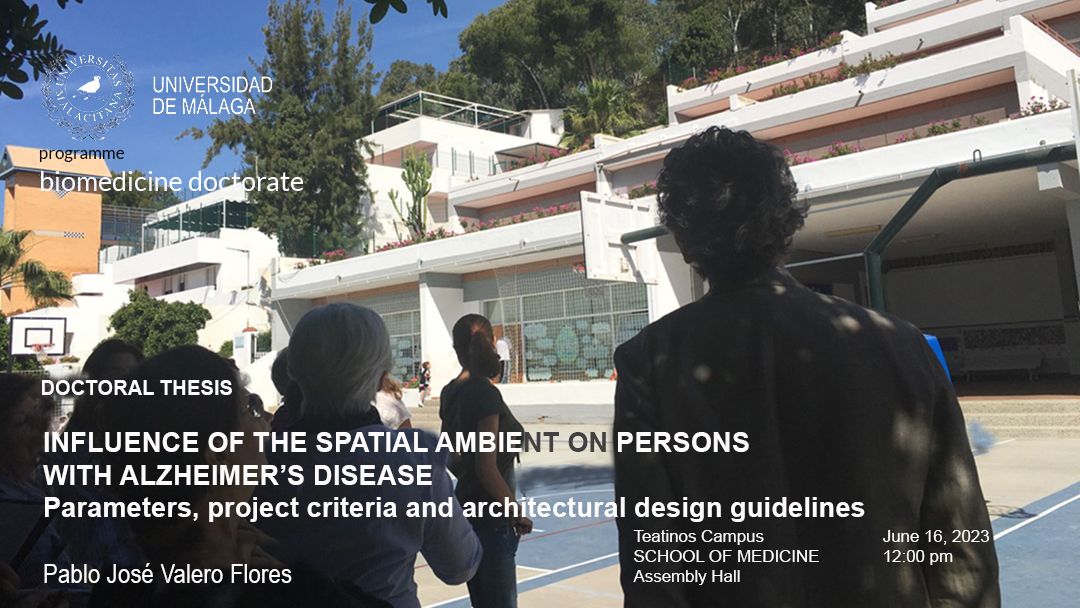MALAGA / June 16, 2023
Teatinos Campus | School of Medicine | Assembly Hall
On June 16, 2023, the defense of the Doctoral Thesis will take place by Pablo José Valero Flores, a member of the Healthy Architecture & City research group of the University of Seville. The director has been Dr. Santiago Quesada García, researcher in charge of the research group. The thesis has been developed in the PhD Programme in Biomedicine, Translational Research and New Health Technologies of the University of Malaga, specifically, within the line of research of Basic and Applied Neuroscience, with Dr. José Pablo Lara Muñoz as supervisor, belonging to the Nervous Control of Breathing, Circulation and Emotions research group of the School of Medicine.
The development and execution of this PhD thesis has constituted an enriching experience and a novel multidisciplinary relationship, since it is the first time that an architectural theme is developed in the form of a thesis in a doctoral program of a medical school by focusing on specific spatial needs. of a group of people with this specific cognitive disease. This is one of the main contributions of two competitive research projects: the ALZARQ Project (PID2020-115790RB-I00), financed by the Ministry of Science and Innovation, and the DETER Project (US- 1381654), financed by the Junta de Andalucía and the University of Seville.
Title and abstract:
Influence of the spatial environment on users with Alzheimer’s disease: Parameters, project criteria, and architectural design principles
Alzheimer’s disease (AD) is characterized by a progressive alteration of brain function, with a high incidence in people over 65 years of age. This dementia produces important changes in the way that people who suffer from it live. These alterations are caused by disorientation, insecurity, lack of control or limitations on autonomy within their environment. In architecture in recent years, there have been improvements in housing for those with dementia and, in particular, patients with AD. However, the solutions applied in buildings have basically focused on accessibility, with measures aimed at adapting environments through general recommendations that do not differentiate the evolutionary stages of AD, nor the particular needs of the patient. This is because these solutions are not derived from a characterization of the users, nor from a previous evaluation of the environmental stimuli that affect them. In this investigation, we establish the hypothesis that the space and environment directly and significantly influence the user with AD in the initial phase. The objective of this PhD thesis is to determine quantitatively the variables that affect sensory stimulation, orientation, or comfort. To achieve this goal, we have designed a methodology in which the person is at the centre of the investigation, using techniques and tests specifically designed for this purpose. The results allow us to determine some architectural parameters that may influence a sample of people with AD, evaluated in certain environments of the city of Malaga. With this knowledge, it is possible to enunciate a series of criteria and design guidelines to project a physical environment adapted to the specific needs and requirements of these users in a certain place.


